A division bench comprising justice Prabha Sridevan and justice GM Akbar Ali said yesterday that the fact that Reliance had obtained approval after commencing the project was not enough.
The Madras high court has taken exception to Reliance Industries Limited (RIL) going ahead with a gas pipeline related project in the union territory of Puducherry without obtaining environmental clearance in advance.
Passing an order on a PIL filed by S Sai Kumar, hailing from Yanam, a territory of Puducherry, a division bench comprising justice Prabha Sridevan and justice GM Akbar Ali said yesterday that the fact that Reliance had obtained approval after commencing the project was not enough.
The court also asked the Puducherry government to ask for and obtain an environment impact report from experts, since the project area spread over mangrove forests.
The bench said it was disturbed by the company's attitude and expected it to have greater social responsibility. "If an environment disaster strikes, it will strike the mighty and the weak equally. We do not understand why the company should have commenced production and then obtained approval", the bench said.
In his petition, Kumar asked the court to restrain the respondents from establishing a 'block valve station' for the pipeline project in Dariyalatippa village without due process of law as laid down in the Madras River Conservancy Act. He said he apprehended there would be environmental damage if the project was established.
The Puducherry government and the company had entered into an MoU for implementing a national gas development project. The petitioner said that 25% of the local population were fishermen dependent on the river. If the project was not halted, then, by virtue of destruction of coconut plantation and mangrove forests, the possibility of flooding would increase, he added.
The mangrove forests should be protected, Kumar said in his petition.
Disposing of the petition, the bench said the applicant should come forward with an environmental management plan, which must be cleared by experts. To prevent possible future damage, the government should also be satisfied that the damage was not irreversible.
The applicant should be prepared and must sufficiently secure the cost of reversing any damage, the bench said.
The government should also have in place necessary infrastructure to maintain periodical survey and enforce stipulations subject to which the permission may be granted.
Before granting approval, the government should call upon the company to publish its proposal so that the public, particularly those who were likely to be affected, were made aware of the proposed action.
This would ensure transparency in the process and at least safeguard against a possible misjudgement if a mishap occurs, the bench said.
![submenu-img]() India's first horror comedy came years before Stree, Bhediya, Bhool Bhulaiyaa; had no hero, Akshay Kumar borrowed its...
India's first horror comedy came years before Stree, Bhediya, Bhool Bhulaiyaa; had no hero, Akshay Kumar borrowed its...![submenu-img]() Weather Update: IMD predicts extremely heavy rain in this state, light to moderate rain in these states; check forecast
Weather Update: IMD predicts extremely heavy rain in this state, light to moderate rain in these states; check forecast![submenu-img]() Meet India's box office king, only star with 8 consecutive 200-crore hits, bigger than Shah Rukh, Salman, Rajni, Prabhas
Meet India's box office king, only star with 8 consecutive 200-crore hits, bigger than Shah Rukh, Salman, Rajni, Prabhas![submenu-img]() Jeff Bezos' fiancee Lauren Sanchez reveals surprising morning rule, says, 'Just us...'
Jeff Bezos' fiancee Lauren Sanchez reveals surprising morning rule, says, 'Just us...'![submenu-img]() Fast & Furious star Tyrese Gibson arrested in Georgia, details inside
Fast & Furious star Tyrese Gibson arrested in Georgia, details inside![submenu-img]() 'जिस अधिकारी को हटाने की हो रही मांग, उसी का आया मेल', डॉक्टरों ने ठुकराया CM ममता का प्रस्ताव
'जिस अधिकारी को हटाने की हो रही मांग, उसी का आया मेल', डॉक्टरों ने ठुकराया CM ममता का प्रस्ताव![submenu-img]() PM Modi और CM Yogi का ग्रेटर नोएडा दौरा, Traffic Advisory जारी, जान लें अपने रूट का हाल
PM Modi और CM Yogi का ग्रेटर नोएडा दौरा, Traffic Advisory जारी, जान लें अपने रूट का हाल![submenu-img]() Russia Ukraine War पर बोले विदेश मंत्री एस. जयशंकर, 'भारत मदद के लिए तैयार, लेकिन बातचीत शुरू हो'
Russia Ukraine War पर बोले विदेश मंत्री एस. जयशंकर, 'भारत मदद के लिए तैयार, लेकिन बातचीत शुरू हो'![submenu-img]() Chhattisgarh News: बल्ब जलाने को लेकर हुआ झगड़ा, पत्नी ने डंडे से पीटकर पति को मौत के घाट उतारा
Chhattisgarh News: बल्ब जलाने को लेकर हुआ झगड़ा, पत्नी ने डंडे से पीटकर पति को मौत के घाट उतारा ![submenu-img]() Manipur Violence: मणिपुर में स्थिति बिगड़ी, RAF को बुलाया गया, 15 सितंबर तक के लिए इंटरनेट बंद
Manipur Violence: मणिपुर में स्थिति बिगड़ी, RAF को बुलाया गया, 15 सितंबर तक के लिए इंटरनेट बंद![submenu-img]() Auto giant gifts Olympic medallist Manu Bhaker this car, it costs Rs...
Auto giant gifts Olympic medallist Manu Bhaker this car, it costs Rs...![submenu-img]() Union Minister Nitin Gadkari says this big carmaker ignored his advice on EVs, 'now they've…'
Union Minister Nitin Gadkari says this big carmaker ignored his advice on EVs, 'now they've…'![submenu-img]() Tata Safari, rival to Hyundai Alcazar Facelift gets massive discount, save up to Rs…
Tata Safari, rival to Hyundai Alcazar Facelift gets massive discount, save up to Rs…![submenu-img]() Hyundai Alcazar facelift launched in India: Check price, design and other features
Hyundai Alcazar facelift launched in India: Check price, design and other features![submenu-img]() Jawa 42 FJ vs Royal Enfield Classic 350: Price, engine, specs compared
Jawa 42 FJ vs Royal Enfield Classic 350: Price, engine, specs compared ![submenu-img]() Meet man, who cracked UPSC twice, has 20 degrees, resigned as IAS officer due to...
Meet man, who cracked UPSC twice, has 20 degrees, resigned as IAS officer due to...![submenu-img]() Meet woman, daughter of widow labourer who cleared UPSC twice, became IPS at 21, IAS at 22, she is famous as India’s...
Meet woman, daughter of widow labourer who cleared UPSC twice, became IPS at 21, IAS at 22, she is famous as India’s...![submenu-img]() Meet Indian genius, son of IIT-JEE topper, who won gold at world’s toughest...
Meet Indian genius, son of IIT-JEE topper, who won gold at world’s toughest...![submenu-img]() AIAPGET 2024: Counselling registration starts today, check details here
AIAPGET 2024: Counselling registration starts today, check details here![submenu-img]() Meet woman who topped class 10, 12, CLAT, law school, cleared UPSC in 1st try, got AIR 60 with self-study, now posted...
Meet woman who topped class 10, 12, CLAT, law school, cleared UPSC in 1st try, got AIR 60 with self-study, now posted...![submenu-img]() Manipur Violence: Curfew Imposed In Three Manipur Districts Amid Drone, Rocket Attacks By Insurgents
Manipur Violence: Curfew Imposed In Three Manipur Districts Amid Drone, Rocket Attacks By Insurgents![submenu-img]() Kolkata Doctor Case: Victim's Mother Blasts CM Mamata Banerjee's 'Insensitive' Durga Puja call
Kolkata Doctor Case: Victim's Mother Blasts CM Mamata Banerjee's 'Insensitive' Durga Puja call![submenu-img]() Apple Watch Series 10 Launch: Key Highlights & Specs | All-New Apple Watch Unveiled
Apple Watch Series 10 Launch: Key Highlights & Specs | All-New Apple Watch Unveiled![submenu-img]() Ukraine-Russia War: Airports Shut, One Dead As Ukraine Launches Massive Drone Attack On Moscow
Ukraine-Russia War: Airports Shut, One Dead As Ukraine Launches Massive Drone Attack On Moscow![submenu-img]() Kolkata Doctor Case: 'CM Wanted To Strangle The Protest', Victim’s Mother Rejects CM Mamata's Claim
Kolkata Doctor Case: 'CM Wanted To Strangle The Protest', Victim’s Mother Rejects CM Mamata's Claim![submenu-img]() Mukesh Ambani's Reliance ties up with Israeli company to launch....
Mukesh Ambani's Reliance ties up with Israeli company to launch....![submenu-img]() Auto giant gifts Olympic medallist Manu Bhaker this car, it costs Rs...
Auto giant gifts Olympic medallist Manu Bhaker this car, it costs Rs...![submenu-img]() Meet woman, daughter of an Indian billionaire, she leads Rs 20335 crore company, Mukesh Ambani is her…
Meet woman, daughter of an Indian billionaire, she leads Rs 20335 crore company, Mukesh Ambani is her…![submenu-img]() Meet man, who worked at Mukesh Ambani's company for 5 yrs, resigned to launch Rs 1091 crore...
Meet man, who worked at Mukesh Ambani's company for 5 yrs, resigned to launch Rs 1091 crore...![submenu-img]() Meet man, an IITian, who is richer than Infosys founder Narayana Murthy, Sudha Murthy, his net worth...
Meet man, an IITian, who is richer than Infosys founder Narayana Murthy, Sudha Murthy, his net worth...![submenu-img]() Meet Salman Khan’s ‘sister’, who became star at 10, left Bollywood after giving Rs 400-crore hit, now earns through…
Meet Salman Khan’s ‘sister’, who became star at 10, left Bollywood after giving Rs 400-crore hit, now earns through…![submenu-img]() Rs 4000 crore palace, 8 jets, 700 cars: All about Abu Dhabi royal family
Rs 4000 crore palace, 8 jets, 700 cars: All about Abu Dhabi royal family![submenu-img]() Mukesh Ambani's fitness secret: From morning yoga to simple lunch, here are all details
Mukesh Ambani's fitness secret: From morning yoga to simple lunch, here are all details![submenu-img]() Top Tata Motors cars to buy in India
Top Tata Motors cars to buy in India![submenu-img]() Meet actress, who was linked to superstar, quit Bollywood to marry Pakistani cricketer, got divorced, is now...
Meet actress, who was linked to superstar, quit Bollywood to marry Pakistani cricketer, got divorced, is now...![submenu-img]() Weather Update: IMD predicts extremely heavy rain in this state, light to moderate rain in these states; check forecast
Weather Update: IMD predicts extremely heavy rain in this state, light to moderate rain in these states; check forecast![submenu-img]() J&K terror funding case: Baramulla MP Engineer Rashid gets bail till October 2 due to…
J&K terror funding case: Baramulla MP Engineer Rashid gets bail till October 2 due to…![submenu-img]() RG Kar ex-principal Sandip Ghosh sent to 14-day judicial custody till...
RG Kar ex-principal Sandip Ghosh sent to 14-day judicial custody till...![submenu-img]() Adapting to Climate Challenges: The Role of Systems Engineering in Modern Insurance and Financial Services
Adapting to Climate Challenges: The Role of Systems Engineering in Modern Insurance and Financial Services![submenu-img]() Manipur: Internet suspended in state for 5 days amid students' agitation
Manipur: Internet suspended in state for 5 days amid students' agitation












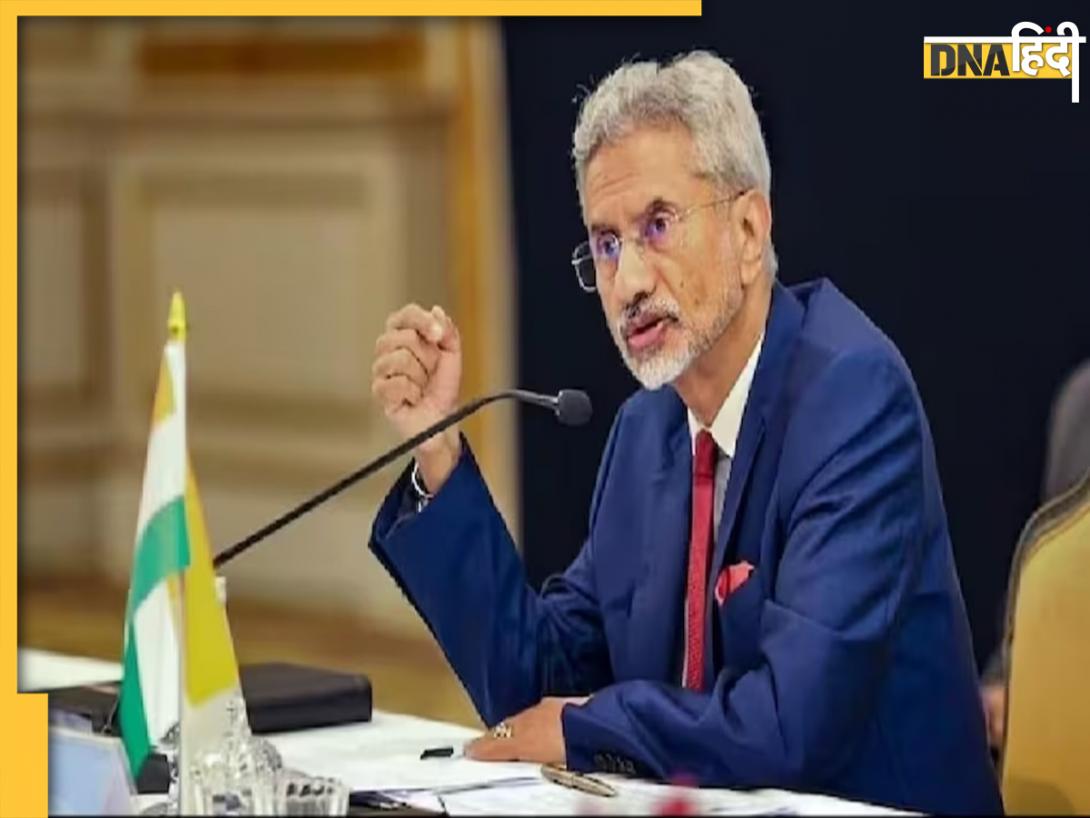

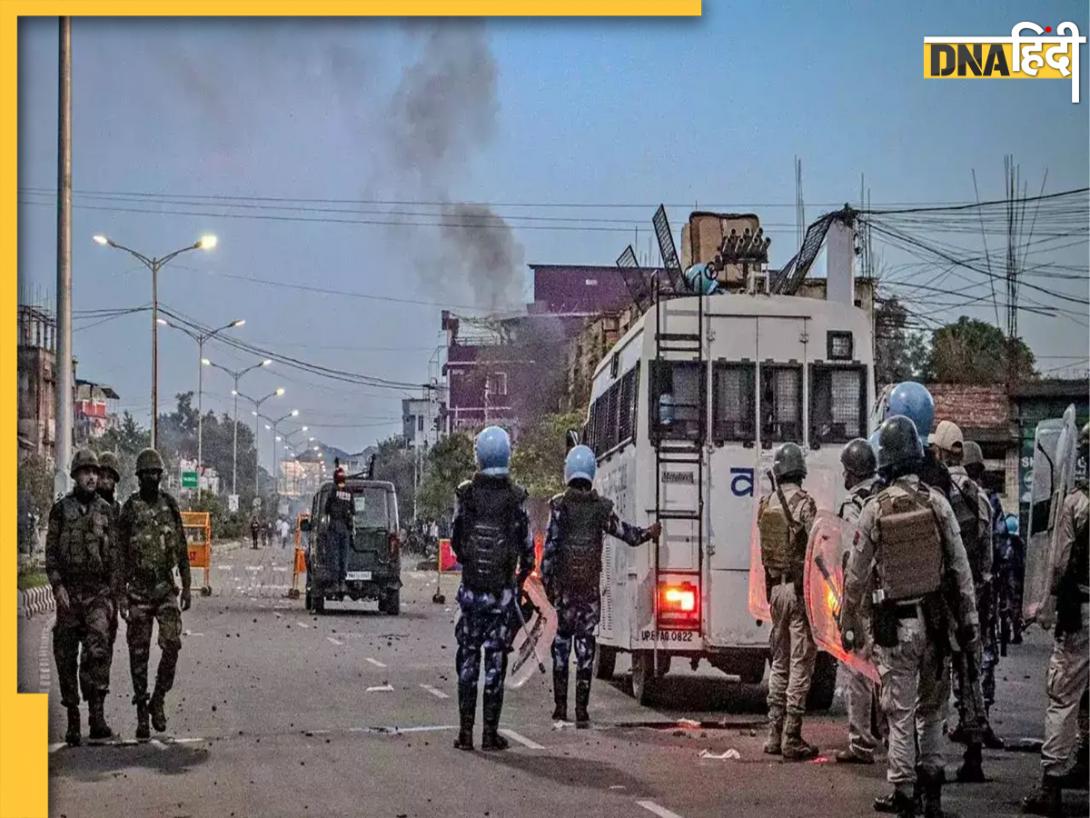











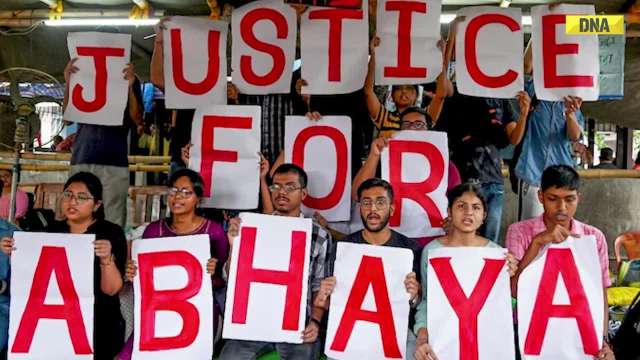



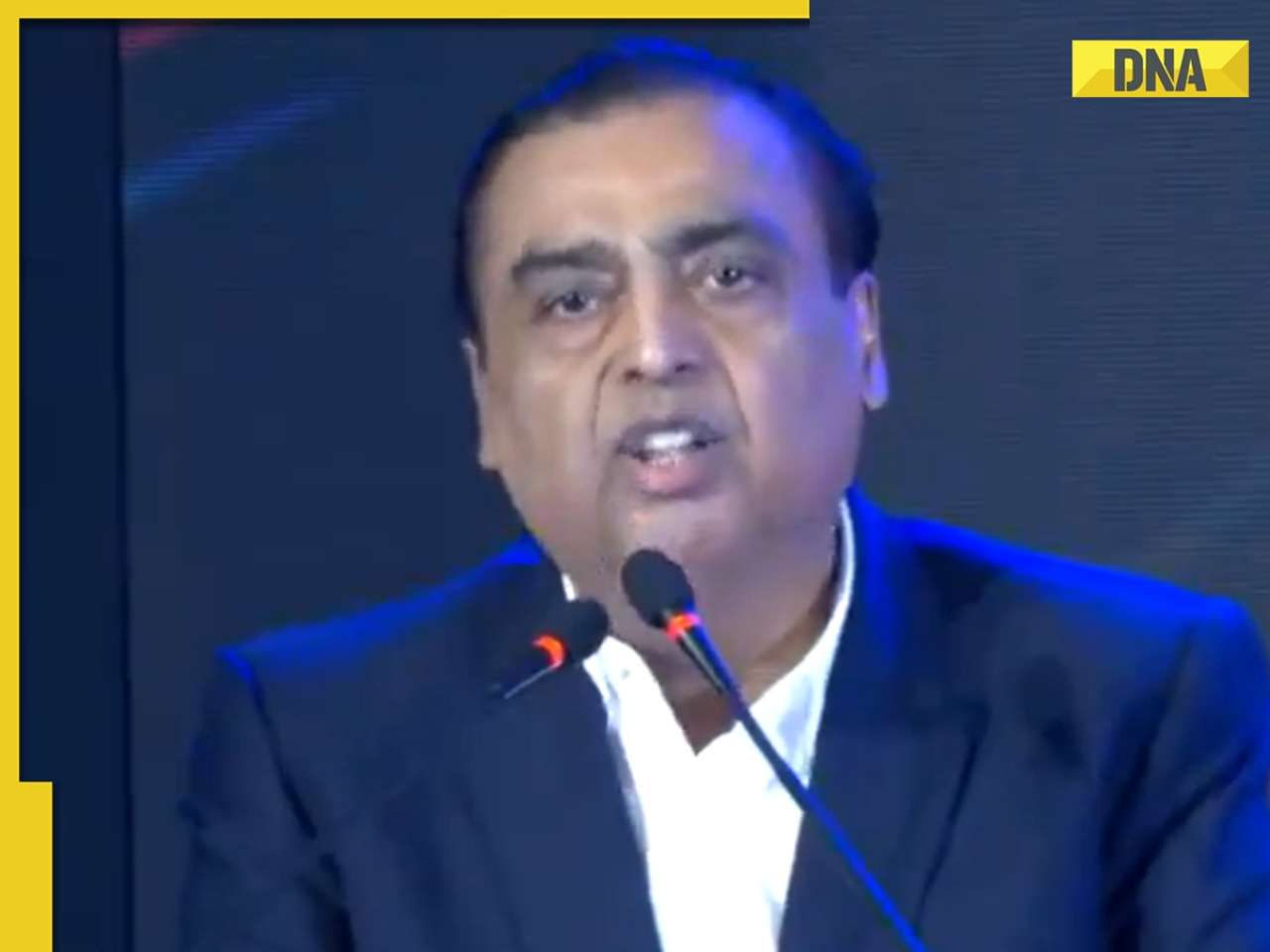








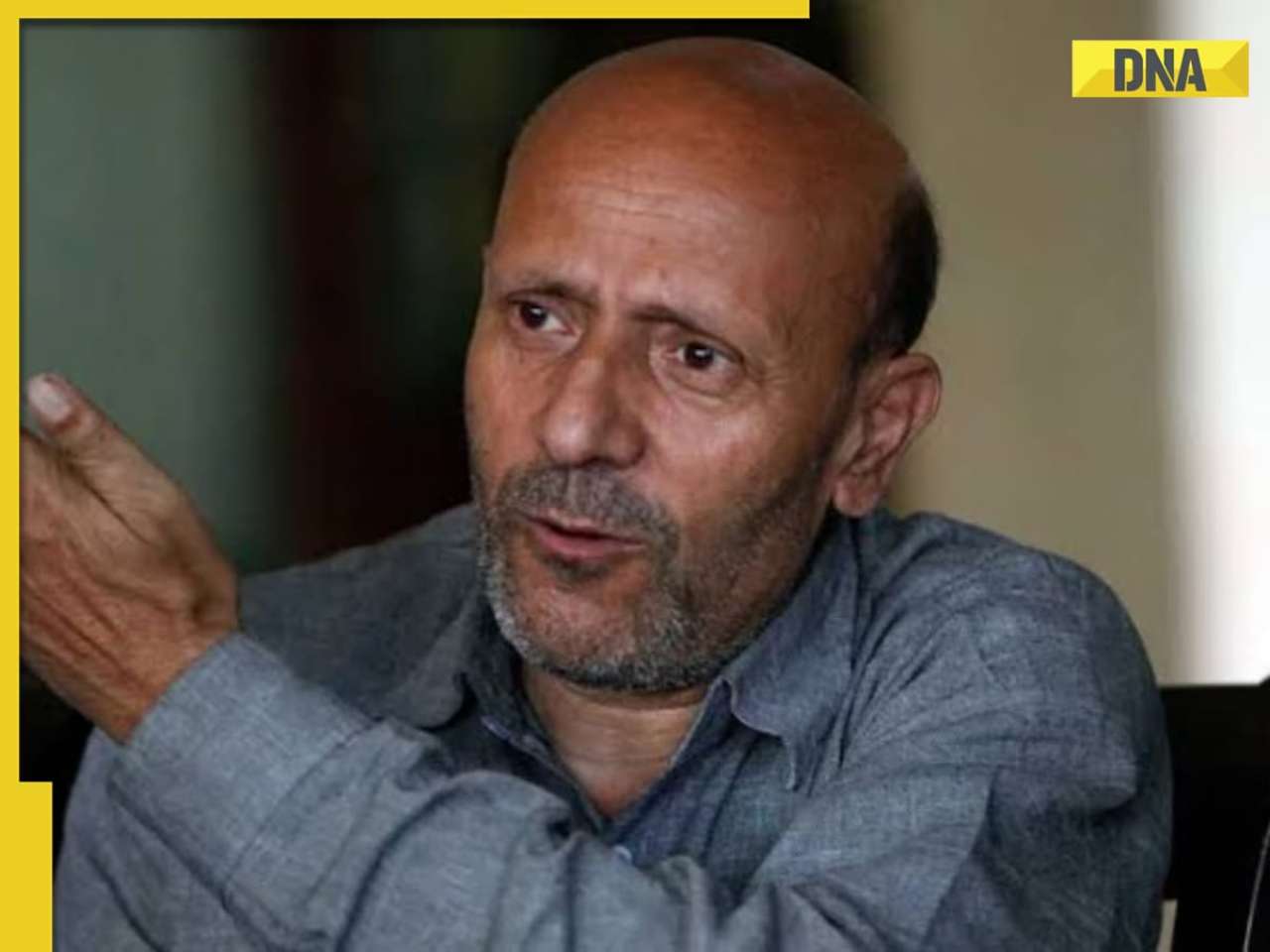


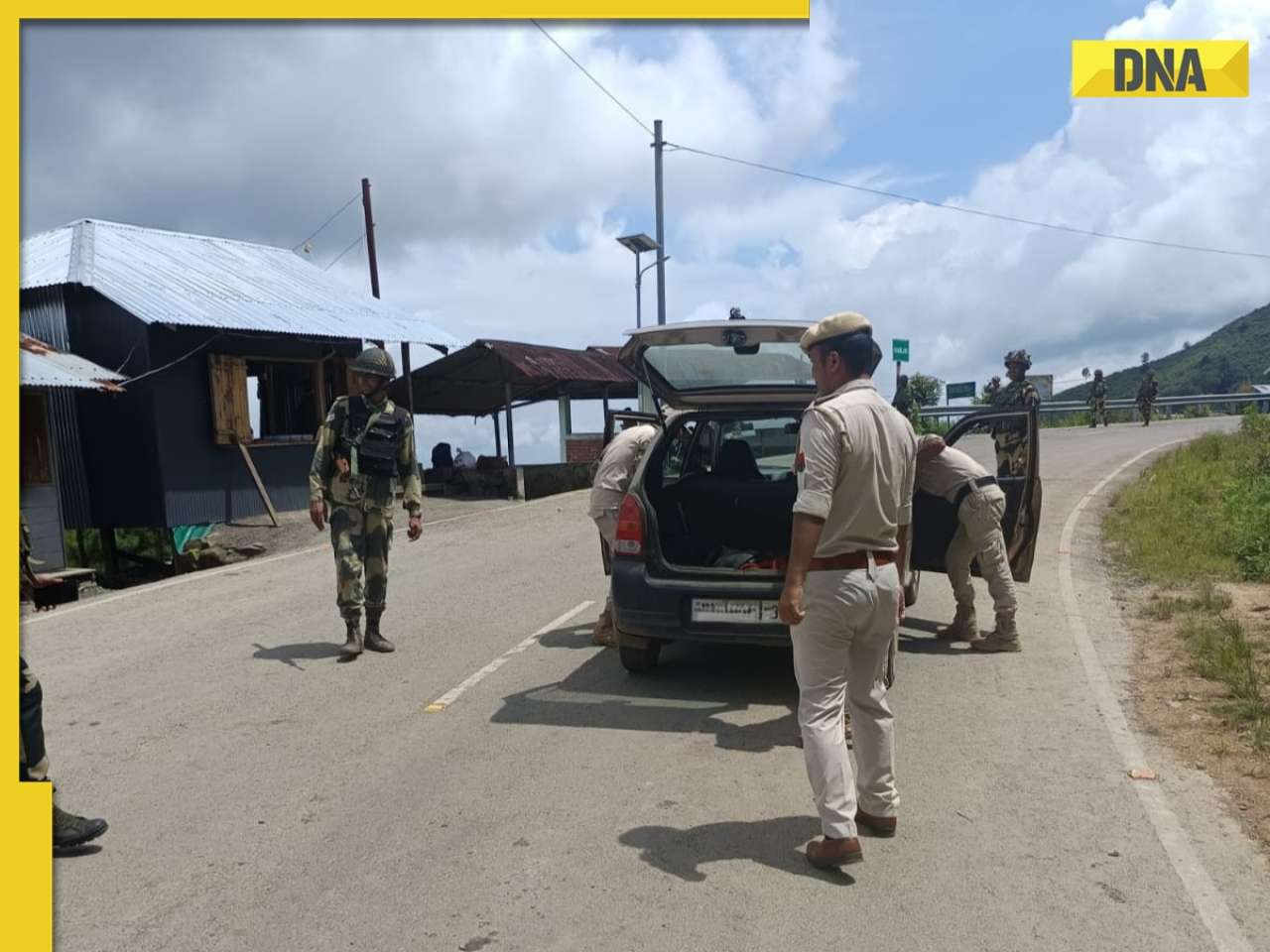


)
)
)
)
)
)
)
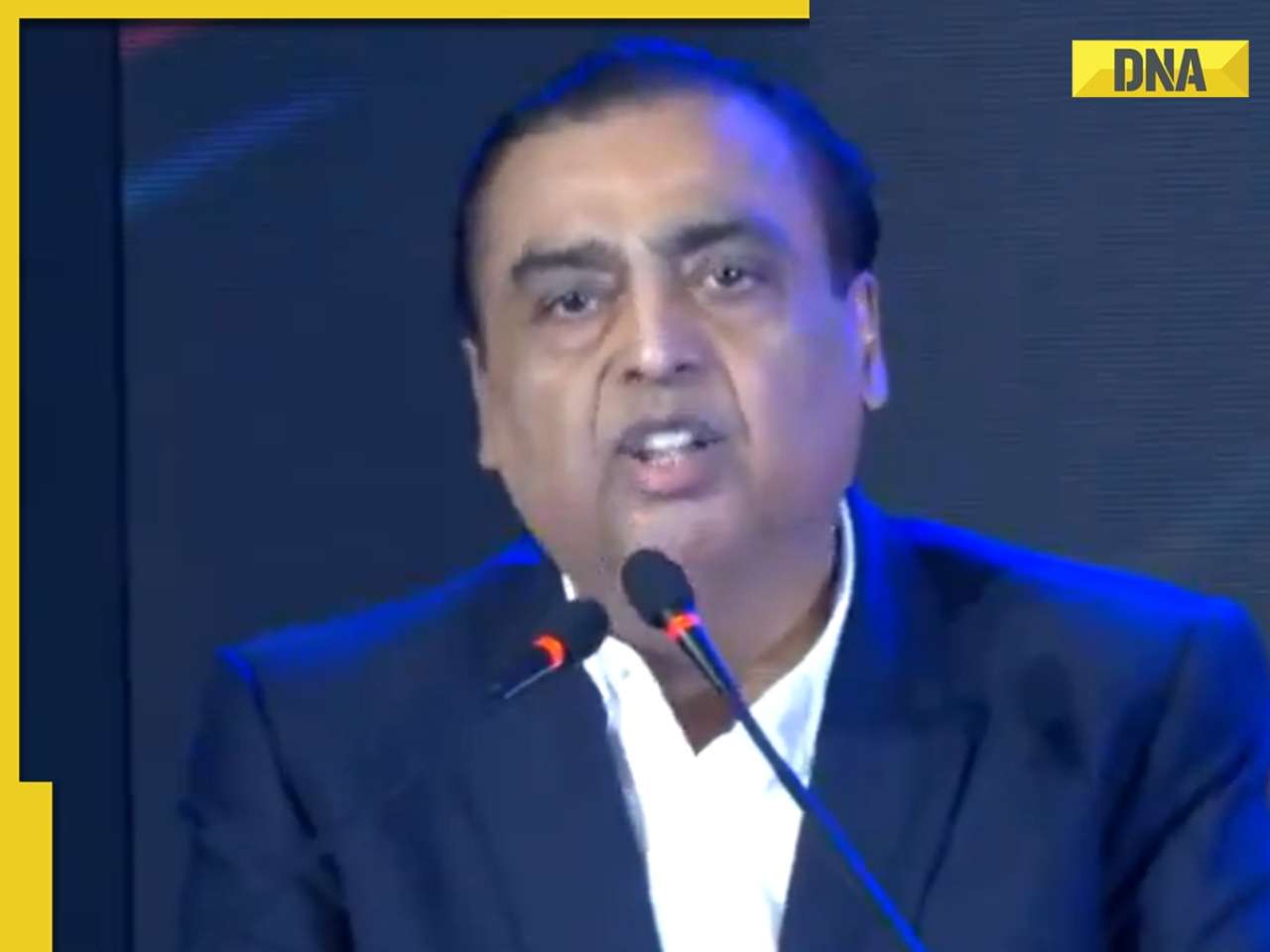)
)
)
)
)
)
)





)
)
)
)
)
)